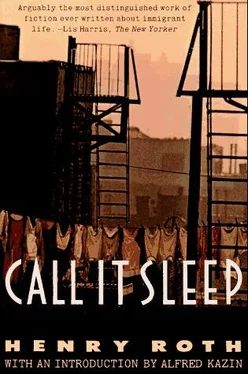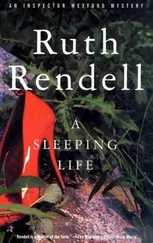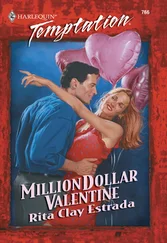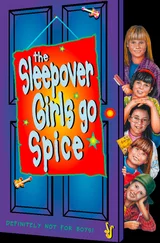“There! There! There! You poor thing!” and with a quick bird-like tug at a pince-nez hanging from a little reel under her coat, she fixed him in magnified grey eyes. “Tt! Tt! Tt! Don’t you know where you live?”
“Yea, I know,” he wept.
“Well, tell me.”
“A hunner ’n’ twenny six Boddeh Stritt.”
“Potter Street? Why you silly child, this is Potter Street. Now, stop your crying!” A little grey finger went up.
“Id ain’d!” he moaned.
“What isn’t?” The eyes behind the lenses contracted authoritatively.
“Id ain’d Boddeh Stritt!” He wept doggedly.
“Please don’t rub your eyes that way! Do you mean this isn’t Potter Street?”
“Id ain’d Boddeh Stritt!”
“Bodder! Bodder! Are you sure?”
“Yeah!” his voice trailed off.
“Bodder, Bother, Botter, try and think!”
“It’s Boddeh Stritt!”
“And this isn’t it?” she asked hopefully.
“Naaaah!”
“Oh, dear! Oh, dear! What shall we do?”
“Waa!” he wailed, “W’eas mine mama! I wan’ mine mama!”
“Now you must stop crying,” she scolded again. “You simply must! Where’s your handkerchief?”
“Waaa!”
“Oh, dear! How trying you are!” she exclaimed and then as if struck with a new thought, “Wait!” She brightened and began hastily rummaging in her little black bag. “I have something for you!” She brought out a large, yellow banana. “Here!” And when he refused. “Now take it!” She thrust it into his fingers. “You like bananas, don’t you?”
“Aaa! I wan’ my mama!”
“I’ll have to take you to—” she broke off. “I’m going to take you to your mother.”
“You ain’d,” he wailed. “You ain’d!”
“Yes, I am,” she said with a positive nod. “This very moment.”
He stared at her incredulously.
“We’re going now. Hold your banana tightly!”
XIII
“AND so you live by dis way and dat way and straight from the school?” Mimicking him, the policeman’s hand glided about.
The old woman had tricked him. She had led him to a police-station and left him. He had tried to run, but they had caught him. And now he stood weeping before a bare-headed policeman with a gold badge. A helmeted one stood behind him.
“And Boddeh Street is the name and you can’t spell it?”
“N-no!”
“Mmm! Boddeh? Body Street, eh? Better look at the map.” He pushed himself back from the railing. “Know it?” he inquired of the helmeted one. “Body Street — sounds like the morgue.”
“Near the school on Winston Place? Boddeh? Pother? Say, I know where he lives! Barhdee Street! Sure, Barhdee! That’s near Parker and Oriol — Alex’s beat. Ain’t that it?”
“Y-yes.” Hope stirred faintly. The other names sounded familiar. “Boddeh Stritt.”
“Barhdee Street!” The helmeted one barked good-naturedly. “Be-gob, he’ll be havin’ me talk like a Jew. Sure!”
“Well!” The bareheaded one sighed. “You were just kiddin’ us, weren’t ye? But look, we ain’t mad. We’ll get your mama in a jiffy.” He nodded to the helmeted one. “See if he wants to do number one or somethin’? The mess that — last — one made—” His voice trailed off as he moved to the telephone.
“Yep!” The helmeted one patted David on the shoulder. “We could use a matron.” And heartily. “C’mon, me boy, yer all roit.” And led him under a low archway, past a flight of stairs and into a bleak, bare, high-ceilinged room. Chairs lined the walls. Bars ribbed the tall windows. They stopped before a white door, went into a tiled-floor toilet that reeked with nostril-searing cleanliness. Beside the doorless alcoves, stretched a drab grey slab, corrugated by a dark trickle of water that splashed into the trough below.
“Step up close an’ do yer dooty, sonny me boy.” He propelled the reluctant David toward the urinal. “C’mon, now. It’s recess time. Sure, I’ve a lad of me own in school.” He turned on the faucet in the wash bowl. “And ye do it with yer mittens on! Say, yer all roit! That’s the way! Git a good one out o’ ye. What would yer mama be sayin, if she found ye were after wetthin yer drawz? This is a divil of a joint, she’d say. What kind of cops are yiz at all? Sure!” He shut off the faucet. “No more’n three shakes, mind ye!”
And David was led out again into the bleak room.
“Any seat in the house, me lad — the winder there — tha-a-ts it. Yer a quiet kid. And we’ll page ye the minute yer mother comes. Ther-r-r!” He turned and went out.
Drearily, David gazed about him. The loneliness of the huge room, made ten-fold lonelier by the bare, steep walls, the long rows of vacant chairs sunken in shadow, the barred windows barring in vacancy, oppressed him with a despair so heavy, so final, it numbed him like a drug or a drowsiness. His listless eyes turned toward the window, looked out. Back yards … grey scabs of ice … on the dead grass … ended in a wall of low frame houses, all built of clapboards, all painted a mud-brown, all sawing the sky with a rip-tooth slant of gabled roofs. Shades were half drawn. From all their chimneys smoke unwreathed into the wintry blue.
Time was despair, despair beyond tears.… He understood it now, understood it all, irrevocably, indelibly. Desolation had fused into a touchstone, a crystalline, bitter, burred reagent that would never be blunted, never dissolved. Trust nothing. Trust nothing. Trust nothing. Wherever you look, never believe. Whatever anything was or did or said, it pretended. Never believe. If you played hide’n’-go-seek, it wasn’t hide’n’-go-seek, it was something else, something sinister. If you played follow the leader, the world turned upside down and an evil face passed through it. Don’t play; never believe. The man who had directed him; the old woman who had left him here; the policeman; all had tricked him. They would never call his mother, never. He knew. They would keep him there. That rat cellar underneath. That rat cellar! That boy he had pushed was still. Coffin-box still. They knew it. And they knew about Annie. They made believe they didn’t, but they knew. Never believe. Never play. Never believe. Not anything. Everything shifted. Everything changed. Even words. Words, you said. Wanna, you said. I wanna. Yea. I wanna. What? You know what. They were something else, something horrible! Trust nothing. Even sidewalks, even streets, houses, you looked at them. You knew where you were and they turned. You watched them and they turned. That way. Slow, cunning. Trust noth—
On the stairs outside, heavy feet tramped down, accompanied by a rhythmic clacking as if some hollow metal were bouncing against the uprights under the bannister rail—
“C’mon, Steve!” A loud voice dwindled into the room beyond. “Kick in fer a change!”
And a blurred reply met blurred rejoinders and laughter. Then the stalwart rap of dense heels approached. The helmeted one switched on the lights, revealing another beside him, a man in plain clothes, thick-set, lipless and impassive, who swung in his hand a large tin dinner-pail. The new-comer turned quizzically to the helmeted one.
“He did?”
“He did so.”
“Well!” ominously.
“A banana that size! And if I hadn’t winked me oiyes quicker than a flash, he’d have poked it in like a spoon into a stew!”
“A cop-fighter, hunh?”
“And a bad one, I’m tellin’ ye! Me peepers are still watherin’! And he’s afther kickin’ me in the brisket till I’m blue as me own coat!”
“Hmm! Maybe we better not git ’im any o’ dat chawklit cake.”
“Well, now!” The helmeted one levered up his helmet to scratch his smoky red hair. “What d’ ye think? He’s been a good boy, since.”
Читать дальше












